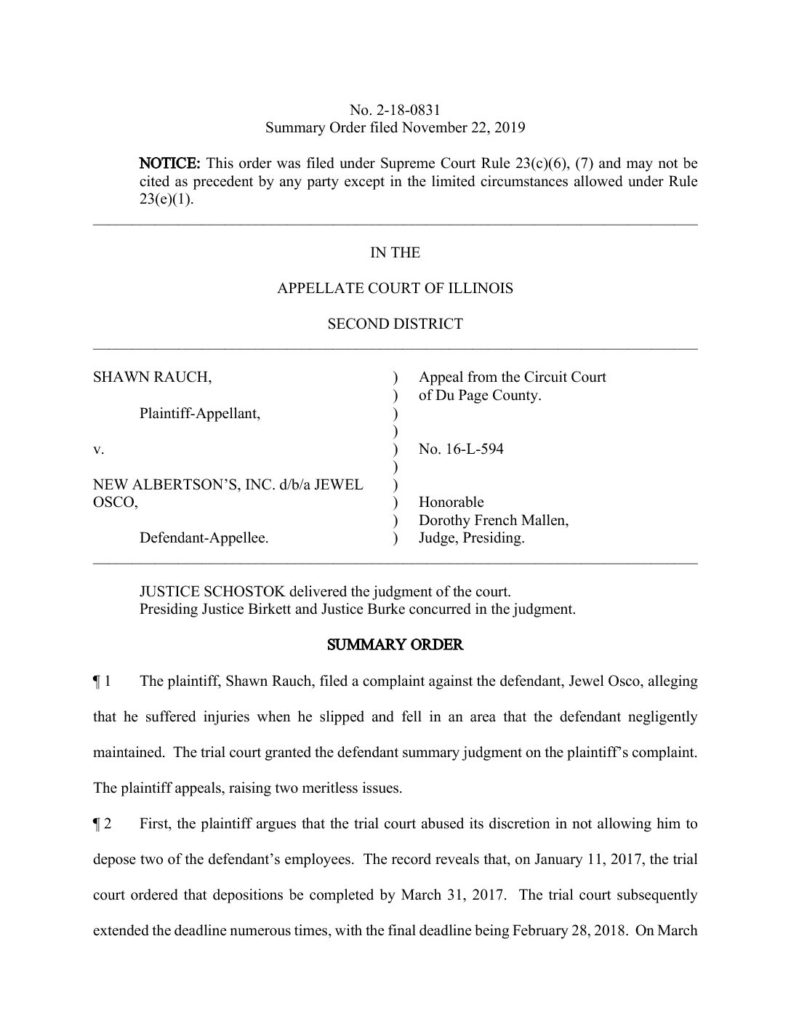Warning: Undefined array key "file" in /var/www/wp-includes/media.php on line 1768
Another great win for a retailer in Illinois and this one was upheld by the Second District Appellate Court of Illinois.
Here is what took place. The plaintiff was at laundry mat and he went into a nearby grocery store to use the ATM machine. After taking a few steps into the store he turned right and claims he slipped and fell in a thick substance on the floor. An employee came upon the plaintiff after the incident but did not see him fall. The employee asked if the plaintiff was okay, the plaintiff said he was and the plaintiff stood up on his own and walked away. Once the plaintiff left the area the employee inspected the floor and did not see any liquid or substances but he saw a scuff mark near where he found the plaintiff on one knee.
The employee testified the area at issue was inspected every 20 minutes. Thus, at most, the foreign substance was there for 20 minutes.
At the trial court level, the plaintiff was represented by counsel until after his deposition, when his attorney withdrew. The plaintiff then proceeded pro se for some time but failed to conduct any discovery. Once the court closed fact discovery we moved for summary judgment with an affidavit from the store employee who inspected the floor after the incident. The basis for the motion was there was no constructive notice because the area at issue was inspected every 20 minutes and the plaintiff did not know for how long the alleged substance was on the floor prior to his fall.
After the motion was filed, the plaintiff retained new counsel. Counsel orally asked to reopen discovery before responding to the summary judgment motion and the court denied the motion but advised a written motion could be filed with the same request. Instead of filing a written motion to re-open discovery so counsel could depose store employees, counsel responded to the summary judgment motion. The trial judge granted the motion because there was no evidence the store had constructive notice.
The plaintiff appealed the court’s ruling and new attorney represented counsel in the appeal. On appeal, the plaintiff argued the summary judgment ruling was wrong and the plaintiff argued the court improperly denied the plaintiff the right to depose store employees. Neither of these arguments went anywhere, especially regarding the plaintiff being barred from taking depositions because that was absolutely not true. The judge told counsel to file a written motion with the request and it was counsel’s decision not to file such a motion.
As for constructive notice, the appellate court relied on the affidavit testimony of the employee who stated the area at issue was inspected every 20 minutes, so 20 minutes was the longest the substance could have been on the floor. The appellate court ruled that was insufficient time to give the defendant constructive notice of the slippery condition, and therefore, summary judgment in the defendant’s favor was proper.
A copy of the appellate court’s decision is attached.
